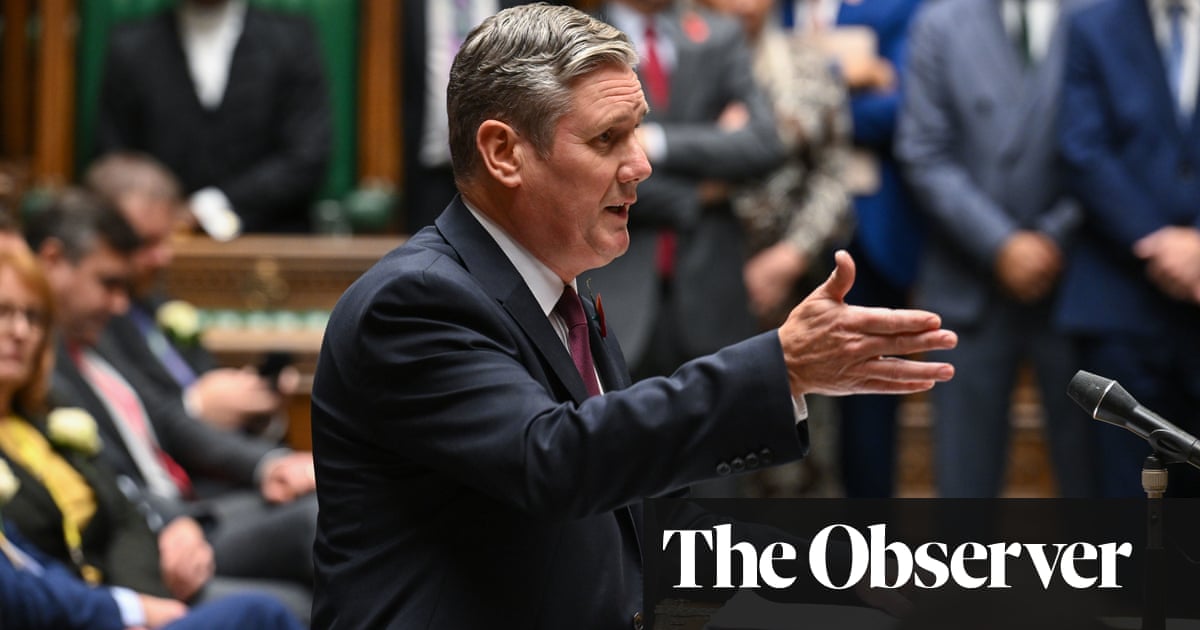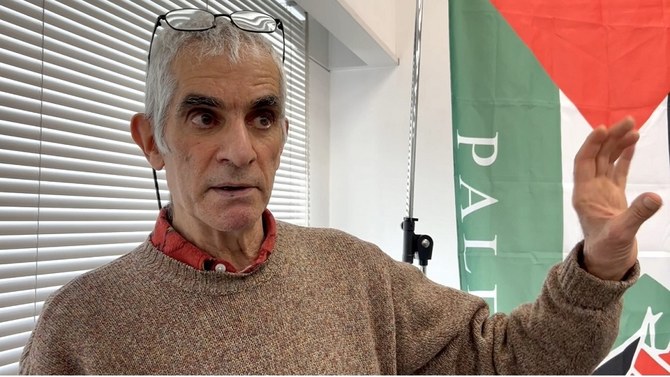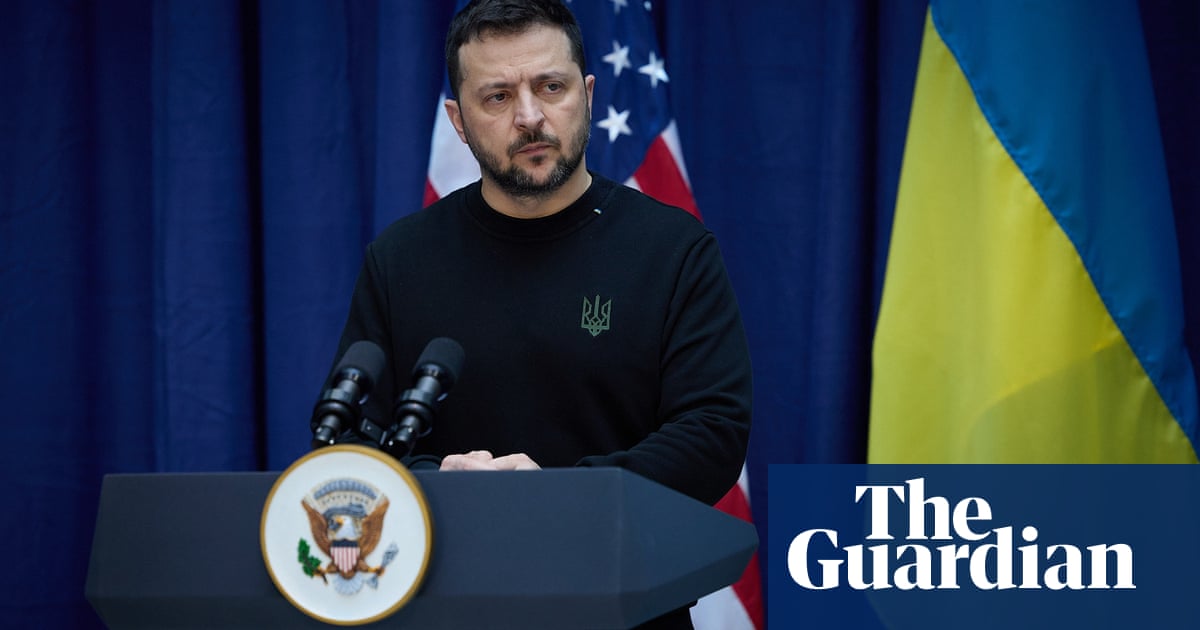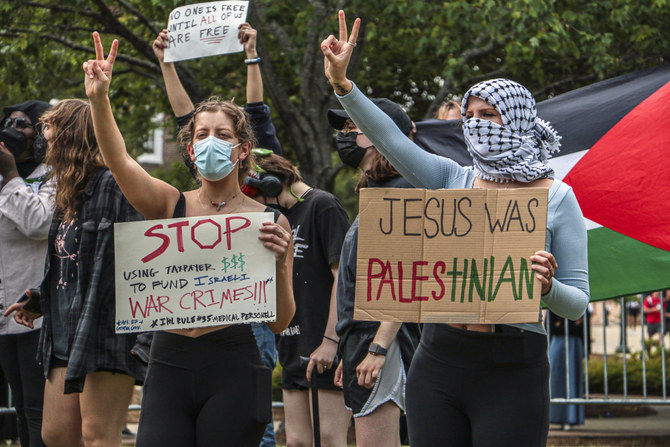
As fate would have it, the recent Labour conference in Liverpool opened the day after Hamas started its deadly incursion into southern Israel to seize hostages and commit barbaric acts of terror. Sir Keir Starmer led his party in unequivocal denunciations of the atrocities, combined with unambiguous expressions of support for Israel as it reeled in horror at the single biggest act of antisemitic mass-murder on its soil since the Jewish state came into existence. The following day, Angela Rayner led the conference in a minute’s silence in remembrance of the victims.
The leadership team worried that there might be some dissent from the floor and put in place plans to deal with it. Anyone disrupting the minute’s silence was to be frogmarched out of the hall and taken to a shredder. Their conference pass would be destroyed and then they would be expelled from the site. The shredder was never switched on, because there was not a single murmur of dissent in the packed conference hall. Labour people stood as one in empathy and solidarity with Israel.
That unity hasn’t lasted. Frankly, it never was likely to last. People much more expert than I am on the workings of the terrorist mind say that Hamas wanted to provoke the ferocious Israeli response that has followed. Pulverising aerial bombardments are creating thousands of civilian casualties in the Gaza Strip and a severe humanitarian crisis. This has brought Labour’s latent internal tensions boiling to the surface. The dissent-free party of conference time “feels like a million years ago now,” sighs one Labour MP. There’s been an eruption of sharp divisions often vehemently expressed about the posture the party should be taking towards the conflict.
Some of this inflammation of feeling is the result of a serious error made by Sir Keir. Even close allies will privately concede that he blundered in the interview with Nick Ferrari on LBC which has become infamous with some sections of opinion. The Labour leader gave an answer which could be clipped and construed as him saying that he didn’t disapprove of the Israeli government cutting off power and water to the two million civilians, about half of them children, in Gaza. Sir Keir subsequently issued corrective statements on TV and social media to the effect that he was opposed to the collective punishment of a civilian population. “It is not and never has been my view that Israel had the right to cut off water, food, fuel or medicines. International law must be followed.” The trouble with these clarifications is that they took an extremely long time coming. In a world of 24/7 news and viral social media, you can’t hang around for more than a week before making yourself clear and especially not during a crisis which is unleashing so much death and destruction, so much pain and passion. “He made a terrible, terrible mistake and he took far too long to correct it,” says one Labour frontbencher. The result has been some of the most torrid days of his time as leader. A week he hoped to spend celebrating a duo of victories at byelections and pressing the Tories about the cost of living has instead been consumed by trying to contain the furies within his party.
Shabana Mahmood and Wes Streeting, shadow cabinet members who would normally be counted among Starmer ultra-loyalists, privately warned Sir Keir that Labour risked sounding callously indifferent to the suffering in Gaza. A different member of the shadow cabinet reports: “If you are an MP in a heavily Muslim constituency, you are under intense pressure at the moment.”
Claims are in circulation that anger about Sir Keir’s position could cost the party as many as 30 seats at the general election. That is dismissed as wildly speculative by some. “Everyone is getting panicky,” says another member of the shadow cabinet. “We need to calm down.” Labour MPs with large proportions of Muslims in their constituencies are getting highly anxious. “I take it very seriously,” says one. “They feel that we haven’t understood their hurt and pain in the way we did for Jewish people.”
The Labour leader is backing the idea of “humanitarian pauses” to the conflict, a position which puts him in lockstep with Rishi Sunak who is trying to hug close to Joe Biden. You will not hear many voices saying that they are opposed to supplying humanitarian assistance to Gaza. The need is acute and urgent. But there’s also no pretending that this is going to address the fundamental forces generating the horrors of this crisis.
A rising number of people in his party want Sir Keir to add his voice to the calls for an immediate and full cessation of military action, a demand dismissed by the Israelis as a denial of their right to attempt to “root out” Hamas. Yasmin Qureshi, the shadow minister for equalities, publicly broke with Labour’s official position on the most high-profile occasion of the parliamentary week when she called for a ceasefire at the most recent session of prime minister’s questions. Sadiq Khan and Andy Burnham, the mayors of London and Manchester, and Anas Sarwar, the leader of the party in Scotland, became the most senior Labour figures to support the call. These demands will likely grow louder as Israel expands its ground operations in Gaza. The idea of a ceasefire will be naturally popular with many Labour members, but allies of Sir Keir see the calls for one as virtue-signalling by British politicians who have no traction over either Hamas or Israel. “What is happening in Gaza is unspeakably awful. No one wants anybody to die, but calling for a ceasefire is ridiculously stupid,” says one senior Labour MP. “Hamas are going to carry on fighting and so are the Israelis.” A member of the shadow cabinet who is close to the Labour leader observes that it is “easy for backbenchers and regional mayors” to make “not credible” demands for a ceasefire, but Sir Keir would look unserious as a candidate to be prime minister were he to follow suit. “We’re not dealing with two rational state actors. We’re dealing with a terrorist organisation and an Israeli government which is threatening to blast Gaza to smithereens.”
Sir Keir is not the only leader facing angst and opposition from within his own party. The Israel-Hamas war is causing turmoil on the left in a lot of the western democracies. It is splintering the Democrats in America, where a growing number of the party are pushing the White House to take stronger action to restrain the Israelis. As we report in today’s newspaper, it is also driving wedges through parties of the left across Europe. Sir Keir is not the only one struggling to stay afloat in tumultuous waters, but that’s scant consolation because it doesn’t make it any easier for him to navigate them.
One of his claims on the support of voters is that he has made Labour fit for government because he leads a “changed party”. He has purged a lot of the hard left, including his predecessor as leader, and marginalised those of them who remain within the party. One fear among his team is that the hard left will exploit this crisis to regain some purchase. Another anxiety is that all the good work making Labour look as united as it did at the party conference will be undermined. The respect of voters as a whole will be diminished if the party becomes deeply fractured and riven with argument about this crisis.
There is no position that Sir Keir can take which will be universally popular in his party and he is at the mercy of events which are beyond his control, never an attractive position for a leader to find himself in. On the list of countries with the capacity to meaningfully influence the conduct, duration and outcome of this conflict, the UK is not at the top. Not even near the top. Mr Sunak is effectively flying in the slipstream of the Americans, because he has very limited independent leverage as the UK’s prime minister.
As leader of the opposition, Sir Keir has even less heft. One member of the shadow cabinet speaks the uncomfortable truth: “What the Labour party has to say has absolutely zero influence on events.” Labour people have every right, and many will feel a burning obligation, to express their views about this horrific conflict. At the same time, they would be best to remember that Labour won’t do itself, or anyone else, any favours if the party becomes devoured by bitter divisions over questions that it lacks the power to resolve.
Andrew Rawnsley is the Chief Political Commentator of the Observer












